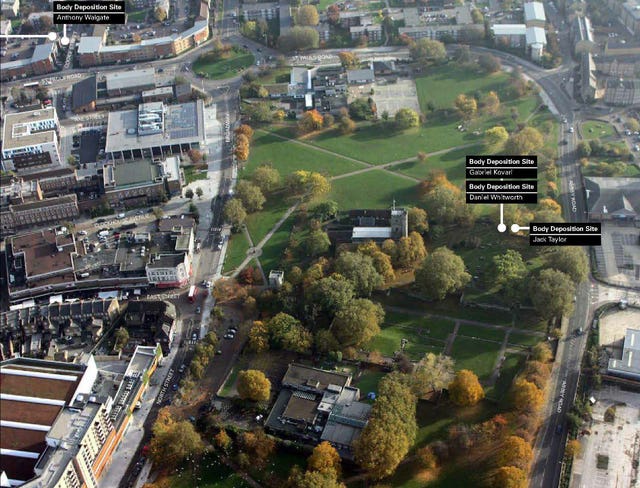‘Fundamental failures’ by police cost lives in Stephen Port probe, inquest finds
The Metropolitan Police has apologised but rejected claims from the victims’ families that homophobia played a part.

“Fundamental failures” by police investigating the victims of serial killer Stephen Port probably cost lives, according to damning inquest conclusions.
The families of the four young, gay men killed by sex predator Port called for the police watchdog to reopen its investigation into the Metropolitan Police’s handling of the case after none of the 17 officers involved were disciplined, with seven even being promoted.
The relatives said they were “elated” at the jury findings but renewed accusations that police prejudice played a part in their failure to listen to their concerns.
The Metropolitan Police apologised over the “devastating” findings, and the police watchdog confirmed it is considering reopening its inquiry into the bungled original investigations.
Port struck three more times before he was finally caught, killing each victim in near-identical circumstances, with police failing to link him to the deaths despite detective work carried out by the victims’ family and friends that would lead them to the culprit.
Officers had denied accusations of prejudice and homophobia, instead blaming mistakes on being understaffed and lacking resources, with some acting up in senior positions.
Jurors at the inquests into the deaths of Mr Walgate, 23, Gabriel Kovari, 22, Daniel Whitworth, 21, and 25-year-old Jack Taylor concluded police failings “probably” contributed to the deaths of the three last victims, all of whom were unlawfully killed.
In written conclusions, the jury acknowledged officers’ “heavy workload” but said there were failures that “cannot be overlooked”.
The jury said: “We believe there were fundamental failures in these investigations, which were at a basic level.”

Afterwards, Mr Taylor’s sister Donna called on the Independent Office for Police Complaints (IOPC) to “rip up” its report and reopen the investigation into the officers involved.
She said she feels strongly about the issue of homophobia, which the coroner had ruled the jury could not make a finding on for legal reasons.
Ms Taylor said: “Every one of the boys was not treated like individual humans and we have said that they were discriminated against from the very beginning.
“The way they were seen as a druggie, homeless, gay. It’s not acceptable.”
Mr Walgate’s mother, Sarah Sak, called for officers responsible for the failings to be disciplined and even sacked.
She said the jurors’ conclusion is a “massive victory” but she is “disappointed” they were not allowed to consider prejudice.
Mrs Sak said: “If Anthony, Gabriel, Daniel and Jack had been girls found in such close proximity there would have been an outcry. There would have been a lot more investigation – and there just wasn’t.”

Assistant Commissioner Helen Ball issued an apology on behalf of the Met but rejected the families’ claim that homophobia played a part.
She said: “We don’t see institutional homophobia. We don’t see homophobia on the part of our officers. We do see all sorts of errors in the investigation, which came together in a truly dreadful way.”
The conclusions followed eight weeks of hearings at Barking Town Hall in which police admitted failing to carry out basic checks, send evidence to be forensically examined, and exercise professional curiosity during the 16-month killing spree from June 2014 to September 2015.
Port, 46, a bus depot chef, will die in prison after being handed a whole life sentence at the Old Bailey for the murders and a string of sex assaults.
Since the inquests began, a new alleged victim has come forward to say they believe they were drugged and sexually assaulted by Port in the same period.

Instead, Port killed him, dragged his body outside and called 999 anonymously, claiming to have found him collapsed as he was passing.
Requests were rejected for a specialist homicide team to take over the case, which was instead left in the hands of borough officers.
A basic check on the police national database would have flagged up Port as a suspected rapist and his involvement in a suspicious incident at Barking station days before.
Port’s laptop computer, which would have revealed his obsession with rape pornography, was not examined for many months.

It meant he was free to kill three more young men who were dumped in or near St Margaret’s churchyard in Barking.
The victims’ families had repeatedly raised concerns the deaths were suspicious but police failed to listen.
Many loved-ones carried out their own investigations before an officer involved in the Walgate probe recognised Port with his final victim on CCTV.





